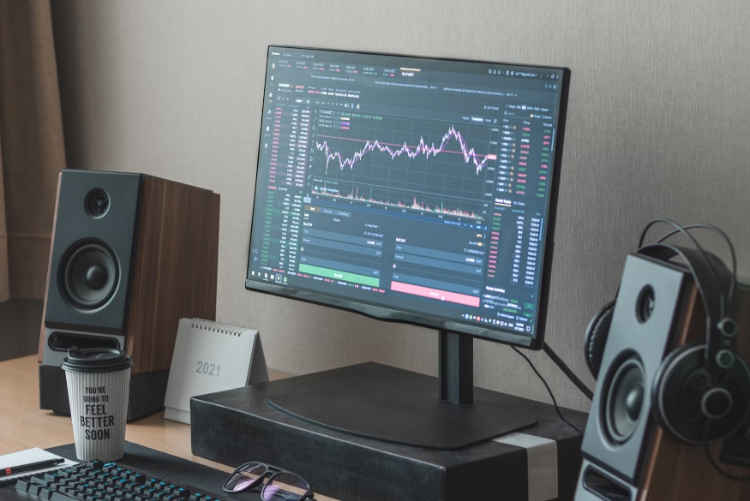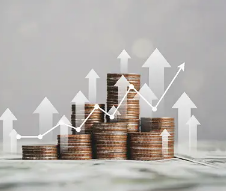Please use a PC Browser to access Register-Tadawul
Trading Wisdom | 4 Trading Tips That Will Transform You Into a 'Master' Instantly
S&P 500 index SPX | 0.00 |
Is it easy to make a large profit in a full-time trading career? Of course not! Korean legendary trader Kim Hyung-jun, who has over 21 years of trading experience and once achieved a record return rate of 728%, shares the 4 practical trading skills he has honed through repeated battles in the unpredictable market. His motto is:
"The more money you make, the more humble you should remain in the stock market."
He warns investors that if they cannot do these few things, they should not rush into a full-time trading career! In this article, we will share the battle-tested trading skills of the seasoned stock market "general" Kim Hyung-jun on how to improve trading performance. If you can follow these 4 steps, you will become a more relaxed and clear-headed trader.
With summer approaching, traders from all over are entering a critical period before the summer holidays—feeling great pressure to end the first half of the year with a trading performance that they can be proud of.
However, one of the most counterproductive things you can do in this situation is to worry and stress yourself out.
Worry prevents clear thinking. And while it is understandable to want to show something at mid-year, it often leads traders to overtrade, also known as impulsive or emotional trading, which can make things worse.

Of course, worrying is natural, and you cannot stop it from happening. But when it does happen, you can learn to control it, work with it, see through it, and take the right actions, with a clear mind.
No matter who you are, if you do not systematically eliminate the habit of worrying from your life, you will find it challenging to build a sustainable and valuable trading career.
Remember my words—this is speaking from experience.
Nevertheless, here are 4 tips to help you eliminate worries and performance pressure, so you can genuinely improve your trading performance for the rest of the year until year-end.
Step 1: Cultivate awareness
Develop the habit of paying attention to your worries and overthinking.
Many times, we get stuck in our own heads. We unquestioningly believe the endless thoughts flashing through our minds, ultimately making us more neurotic, unhappy, and frustrated...
A fundamental principle of mindfulness is that we take our thoughts too seriously.
Therefore, through consistent meditation practice, we can begin to cultivate awareness of our thought patterns so that we do not automatically get caught up in them.
Ultimately, sustained profitability in trading boils down to a choice.
Are you letting emotions and random thoughts drive your actions and determine your trading performance, or are you letting yourself be guided by strategy, planning, clear thinking, and process?
When there is a conflict between the two—you can only satisfy one.
However, when mindfulness becomes a habit, it can increase your ability to make wiser choices, making it easier for you to choose your strategies emotionally.
So, do not overlook meditation. Invest time and effort and practice regularly. You will see the benefits.

Step 2: Understand what is realistically achievable
About 14 years ago, when I first started trading, I had unrealistic expectations and did not quite understand what consistency meant in this industry.
While I knew that there would be losses here and there, I did not understand how doing good trades could avoid the pain of losses, rather than realizing that good trades could and often do turn into bad results.
We cannot control the market; there are uncertainties in prices that no amount of analysis, preparation, or insight can eliminate.
The reality of trading is that we do not always get what we want; it is just a part of life.
So, I had to undergo a gradual adjustment in what I thought consistency meant.
In trading, consistency does not mean making money every day, every week, or every month.
Of course, you will put in your best effort (by arranging trades well, managing risk, reducing trading errors) to make it happen, but it is not something you can reliably achieve.
The market is always changing, and your strategy cannot capture every move.
Therefore, as a trader, you need to know what your strategy is best suited for.
Is the market a slow and calm trending one?
Is it a fast, volatile trending market?
Is the market sideways, narrow-ranged?
You should be very clear about what your trading strategy is and stick to it.
This means that if your strategy performs better in a slow and calm trending market, there may be periods of sideways movement for a few months.
During these times, your trading performance for the year may not be outstanding.
Therefore, consistency is about the long-term picture.
Can you make money in a lot of trades? That is it; making more money than you lose is what you should focus on. This is how you can improve your trading performance.

Step 3: Do not focus on money, focus on good trades
Now, what if you have messed up many times?
What if you are in the negative territory this year because you have overtraded against your plan?
Here is the thing. I bet that you have messed up several times this year because you were solely focused on money.
You see, trading does not have to be that complicated. The idea is simple: suppose something has happened many times in the past; how much risk are you willing to take to determine if it will happen this time?
That is the problem.
The problem is that you are too fixated on money, hence, you fear losing it, fear missing out... As a result, you are not a rational participant in the market.
To become a profitable trader (rather than a losing one), you must shift your focus from money-driven to process-driven.
View money as a simple scoring system.
When you trade out of love for it, not just for money, you often do better.
Do not misunderstand me, money is indeed important. It represents security, status... It is a very useful tool, crucial for human happiness.
But the contradiction in trading is that the less you focus on money (results), the easier your trading efforts become, and the better your trading performance.
Likewise, back to the topic of messing things up, you must accept mistakes as part of the learning experience.
In trading, you may have made many mistakes and not been punished. The only mistake that will eventually kick you out of the game is related to risk management.
That is where you have to stand firm and not compromise.
So, manage your risk well, do not be too hard on yourself when you make mistakes. As long as you have ammunition (capital), you are still in the game, and every trade you make, whether a win or a loss, will teach you a lesson. This will bring you closer to mastering and improving your trading performance.

Step 4: Identify, prepare, improve
Ask yourself this question:
What is the worst thing that could happen if year-end profits are negative?
No matter what your answer is, imagine that process unfolding.
Then, prepare to accept the worst outcome.
For example, if your trading performance this year is negative. You have lost 30% of your staff.
Take a deep breath, imagine it in your mind, and accept that it did happen.
You do not have to like it; just accept it.
Now that you have imagined and accepted the worst outcome, calmly try to improve it without worries.
Relax, do your best in the remaining two months, and maybe your performance will improve by 5%.
Even if this is your result for the year, it will tell you that with discipline, a clear mind, and worry-free, you can improve your performance within your reach.
This will motivate you to do better next year.

Conclusion
The road to trading success is not smooth sailing. However, I dare say there is a foolproof way to make this road less bumpy.
First, worry less; become more self-aware.
Second, understand the game you are playing. Understand it well.
Third, do not focus on money; never compromise on risk management.
Fourth, ask yourself, "What is the worst possible thing that could happen?" Be prepared to accept the worst outcome and calmly strive to improve the worst-case scenario.
If you follow these 4 steps, you will be more relaxed and clear-headed in the market.
I have seen many traders struggle in trading and have worked with them for years.
For some, the breakthrough never happened.
For others, it did. They put in the time and effort; they controlled the desire for quick riches, traded in small enough sizes to stay in the game and keep learning, turning it into a lifelong journey.
Over time, they changed; they evolved... When they finally improved their trading performance, they could not help but scratch their heads at how obvious it all was.
The "secret" to consistent profitability has always been in plain sight... We just need to grasp it.



